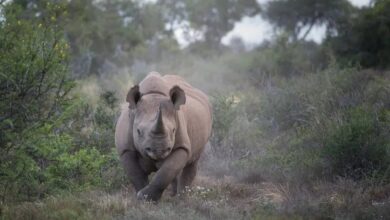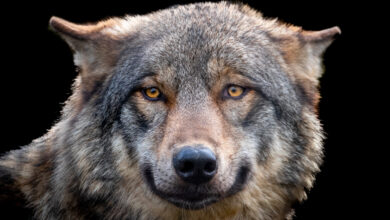
A poacher catches a juvenile sunda pangolin in the early hours of the morning, Kalimantan, Indonesia. The demand for pangolin meat and scales used in traditional Chinese medicine in China and Vietnam is pushing the pangolin to extinction to some areas. According to the IUCN, pangolins are the most internationally trafficked animals in the world. Photo Credit: Paul Hilton for WildAid
Society ChinaMost Chinese Support Law That Keeps Wild Animals Off the Food Menu
In the wake of the Coronavirus pandemic, the Chinese population is largely in favor of stricter regulations regarding trading and consuming wildlife, boosting efforts to prioritize biodiversity conservation.
“Things are changing dramatically, especially because of the big lesson—the pandemic,” says Jinfeng Zhou, Secretary General of the China Biodiversity and Green Development Fund in Beijing. “We expected that people would support [the ban],” says environmental scientist Xiangying Shi of Peking University and executive director of Shan Shui Conservation Center, lead author of the study, “but we didn’t expect such a high ratio.”
The Chinese government swiftly enacted its wildlife consumption ban in February 2020, forbidding wild animals to be sold for human consumption. At the same time, a survey was conducted to find out to what extend the pandemic swayed public opinion about wildlife. It turns out that more than 90% of the respondents are in favor of a strict ban on wildlife consumption, trade, and exhibitions outside of zoos. China’s shift in favor of protecting wildlife is already tangible: more than 15,000 people were prosecuted for wildlife-related crimes this year. That’s a 66% increase compared with 2019 numbers.



